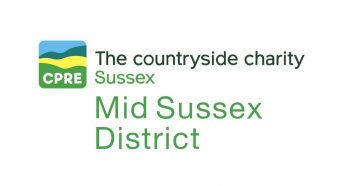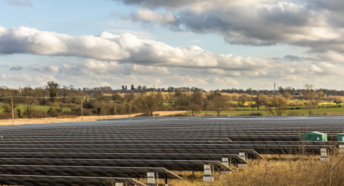Local Plans--Why You Should Care!
Local plans are not the easiest things in the world to read….
In fact, they are really quite difficult to read, especially if you don’t have much experience of the planning process. I know that they aren’t particularly simple to get into, as for the first time ever I have been reading the draft Canterbury Local Plan.
Most people are far too busy to read around 250 pages of strategic planning alongside a further few hundred pages of evidence base; you have children, friends, jobs and lives to lead. I can understand that you’re already rushed and I can understand why you don’t want to spend your valuable time slogging through these dry planning documents. But, this is me telling you that you should care about your local plan, and you should care enough not only to read it, but also to respond to it! The local plan sets the agenda for all of the development in the Canterbury district until 2031. 
It will set the tone for employment opportunities, house building and transport through the whole of the your district and it will affect you massively. Every time you wonder why housing is being built here, or why there are more employment opportunities there, it will be because of that grand strategic plan that your Council will publicly consult on. If you want to make a difference and put your views across, then you have to do so during that consultation window. You cannot complain after the event! The local plan is one of these rare events that really will alter your lives and it is amazingly important that everyone gets engaged in the process. So, write letters to your Councillor, speak to your friends about the plan and most of all, tell the Council what you want in your local plan!
- A number of important documents have yet to emerge. For example, a rigorous transport plan and a finalised air-quality assessment. The latter is critical given that allocations at Teynham will feed extra traffic into AQMAs.
- There seems to be no coherent plan for infrastructure delivery – a key component of the plan given the allocations being proposed near the already crowded Junction 7.
- There seems to have been little or no cooperation with neighbouring boroughs or even parish councils within Swale itself.
The removal of a second consultation might have been understandable if this final version of the plan were similar to that being talked about at the beginning of the consultation process. It is, however, radically different in the following ways:
- There has been a major shift in the balance of housing allocations, away from the west of the borough over to the east, especially around the historic town of Faversham. This is a move that raises many concerns.
- A new large allocation, with accompanying A2 bypass, has appeared around Teynham and Lynsted, to which we are objecting.
- Housing allocations in the AONB around Neames Forstal that were judged “unsuitable” by the council’s own officers have now appeared as part of the housing numbers.
- Most of the housing allocations being proposed are on greenfield sites, many of them on Grade 1 agricultural land – a point to which we are strongly objecting.
Concerns about the rush to submit the plan
The haste with which the plan is being prepared is especially worrying given the concentration of housing in Faversham. If the town is to take a large amount of new housing, it is imperative that the policies concerning the area are carefully worked out to preserve, as far as possible, the unique nature of the town. The rush to submit the plan is likely to prove detrimental.
As Swale does not have a five-year land housing supply, it is open to speculative development proposals, many of which would run counter to the ideas contained in the current plan. Some are already appearing. This is a common situation, and one that, doubtless, is a reason behind Swale’s haste.
Our overriding fear, however, is that this emphasis on haste is ultimately going to prove counterproductive. This is because it is our view that the plan, in its current form, is unlikely to pass independent examination. We are urging Swale to listen to and act upon the comments being made about the plan and to return the plan to the council with appropriate modifications before submitting it to the Secretary of State.
Essentially, this means treating the current consultation not as the final one but as the ‘lost’ second consultation.
The consultation ends on Friday 30 April and we strongly urge residents to make their opinions known if they have not already done so.
Further information








